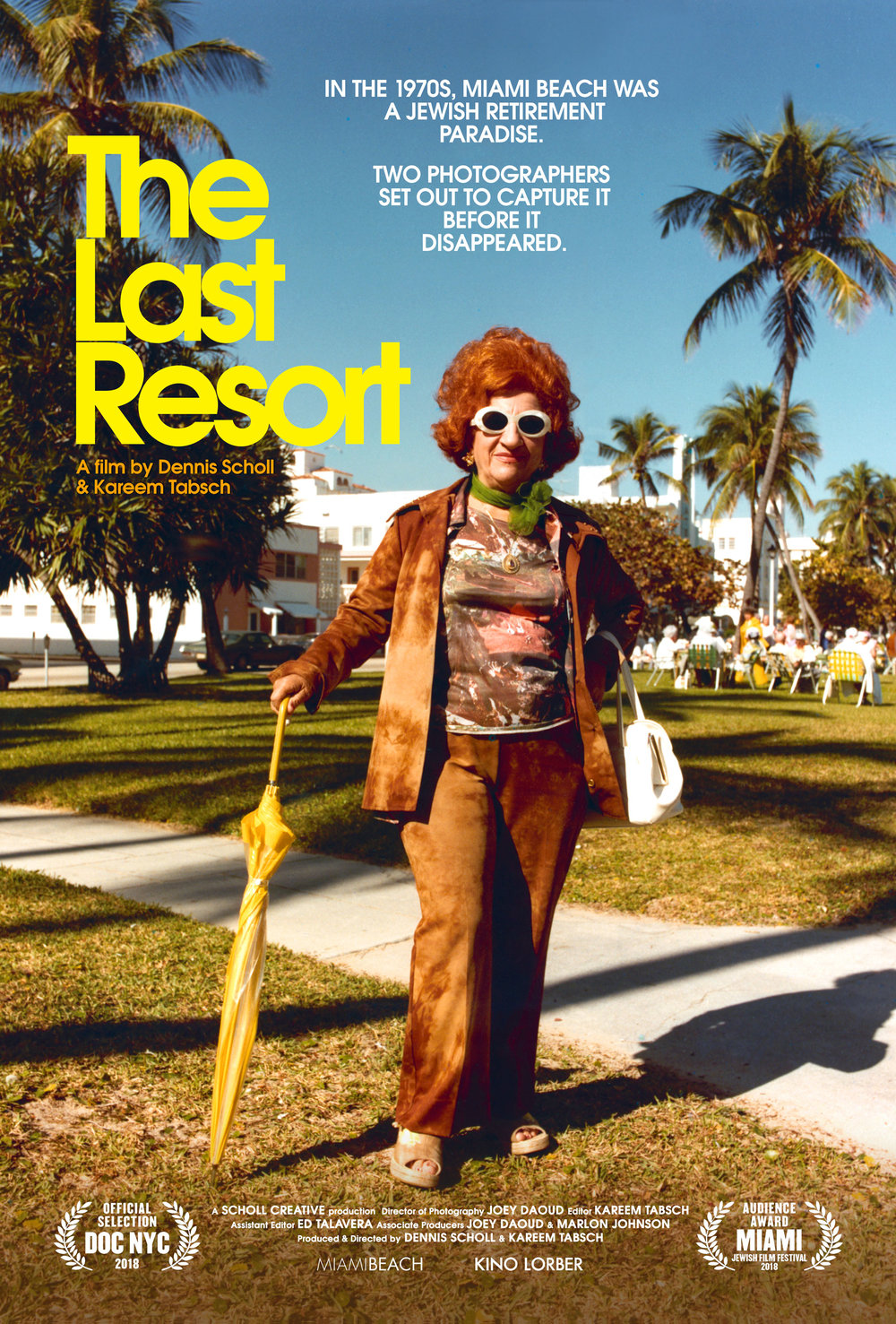By John Thomason
‘Last Resort’ an engrossing tale of a lost Miami Beach
Among the countless quotable lines from Cocaine Cowboys, director Billy Corben’s influential documentary about the Miami Drug War, is this summary of the population of prewar Miami Beach, from one blunt observer: It consisted of “a lot of old people just sitting on rocking chairs waiting to die.”
Corben didn’t linger on the porch sitters much. He cut to the chase, which is to say the coke that flooded into the city from Colombian drug cartels and made Miami Beach, for a dark spell in the city’s history, the most dangerous place in America. In their award-winning debut The Last Resort, South Florida filmmakers Kareem Tabsch and Dennis Scholl cover some of the same terrain but with a different agenda. And to their credit as storytellers, it’s no less interesting than Corben’s, if certainly less sexy.
Tabsch and Scholl’s focus is on that very community that settled in Miami Beach’s 200-plus hotels in the halcyon 1970s: Jewish retirees, many of them Holocaust survivors, enjoying second lives in an octogenarian’s nirvana. Bronzed bodies in floral dresses and enormous glasses basked in the sun, exercised on the beach, danced at the clubs (think big band, not EDM) and formed communities of faith; one interviewee likens Miami Beach to a shtetl, another to a retirement village.
We know this in part because of some grainy video shot during the period; the filmmakers did their diligent homework, amassing and curating vintage clips. But mostly we know it from still images by Andy Sweet and Gary Monroe, the 20-something photographers who captured unsentimental but empathetic scenes of this community in a decade-spanning project.
As much as The Last Resort is about elderly Jews’ short-lived exodus in a South Florida paradise, it’s equally fascinated with the artists who documented it, especially Sweet, a childhood shutterbug turned keen-eyed photographer from a prominent local family. The novelty of this curly-haired, possibly queer Boomer taking interest in lounging émigrés from the Greatest Generation is rich, but it never overpowers the work, which the filmmakers showcase, with justifiable reverence, as both art and historical record.
The Last Resort is a lean but ambitious documentary, exploring in its 70 minutes a changing city, its unique denizens and the artists who encapsulated both. Tabsch and Scholl keep several narrative plates spinning simultaneously, with help from a handful of smart and gregarious interviewees, from celebrated filmmaker and local native Kelly Reichardt to literary entrepreneur Mitch Kaplan to Andy Sweet’s relatives to Gary Monroe. Any time Edna Buchanan, who was interviewed extensively for Cocaine Cowboys, resurfaces with a few hard-boiled bon mots, we lean in to listen; here, she offers this trenchant assessment of the Mariel boatlift’s impact on the city: “Castro really flushed his toilets on Miami Beach.”
Though not without its humor, The Last Resort is suffused with loss and death — of a sense of a place, of a community, of an artist. As the chic hotels crumble into shabby dereliction, the once-vivacious seniors succumb to their own inevitable die-off. Jewish historian Susan Gladstone offers a heartbreaking account of the elderly residents who outlived their peers in the early 1980s, holing away in a crime-ridden city, loneliness and neglect thick in the humid air.
As for Andy Sweet, his journey would meet its own tragic end, further proof that most compelling stories of Miami Beach are true-crime stories. But The Last Resort is imbued with the spirit of a phoenix, and reincarnation awaits for both the island paradise and the photographer’s work. I could have watched another hour of this engrossing portrait, with its multiplicity of stories, its fortunes rising and falling.
Billy Corben’s Miami Beach doc inspired a multimedia franchise of sequels, TV series and even a play opening next month at the Colony Theatre. Should The Last Resort enjoy its own artistic contrails, I’ll be the first to watch them form.



